Over the past month, Catholic Charities of the Diocese of Raleigh has stood alongside FEMA, faith-based organizations, nonprofits, government officials, and individuals from across the country to aid communities devastated by Hurricane Helene. The immediate response to this widespread disaster has been remarkable, but the road to recovery remains long, with many areas expected to face years of rebuilding.
As part of the ongoing commitment to support long-term recovery, Catholic Charities is deploying its seasoned disaster specialists to East Tennessee, where their expertise will provide critical administrative and logistical support for agencies assisting hurricane survivors. This sustained effort seeks to bridge gaps and empower those affected as they work toward reclaiming stability and routine in their lives.
Emilie Hart, the Cape Fear Regional Director of Catholic Charities of the Diocese of Raleigh, shared insights into the mission. “We have the food, we have the water, and temporary shelter, but now we’re looking at long-term needs—how people will get back to a normal routine of work and life and what they need to make that happen. The final piece of assistance is the casework process after the damage assessment is completed. That’s what long-term recovery does.”
Hurricane Helene brought severe impacts to Tennessee, where widespread flooding, power outages, and property destruction displaced thousands. Many communities experienced extensive infrastructure damage, including schools, healthcare facilities, and local businesses, leaving significant portions of the population without essential resources and shelter. Rural areas were heavily affected, with many residents facing weeks of isolation and limited access to clean water, food, and emergency medical care.
Hart will be followed by Cape Fear Disaster Specialist Vicky Sasser, Fayetteville Program Director Vicky Jimenez, and New Bern Program Director Kitti Hardison, who will each lead two-week interval deployments. Sasser’s and Hardison’s years of experience working with disaster survivors provide invaluable support, while Jimenez brings additional expertise in reaching Hispanic populations and addressing language and cultural needs within the response efforts.
“On the North Carolina coast and inland, we’re no stranger to hurricanes. We’ve been through this before, and now we’re able to lend that knowledge to other communities to help them recover,” said Jimenez.
The commitment of Catholic Charities of the Diocese of Raleigh is clear: standing with affected communities for as long as needed.
Vickie Sasser said, “I’m optimistic about going to Tennessee and sharing my knowledge and experience with agency leaders to help improve the long-term recovery process for those affected. If I can expand assistance or improve efficiency in getting services to survivors, then the deployment is effective and well worth our time there.”
Catholic Charities of the Diocese of Raleigh is building a foundation for recovery and future resilience, one deployment at a time. Together, they are striving to set these families up for success and ensure they can rebuild their lives fully and securely after the storm.





